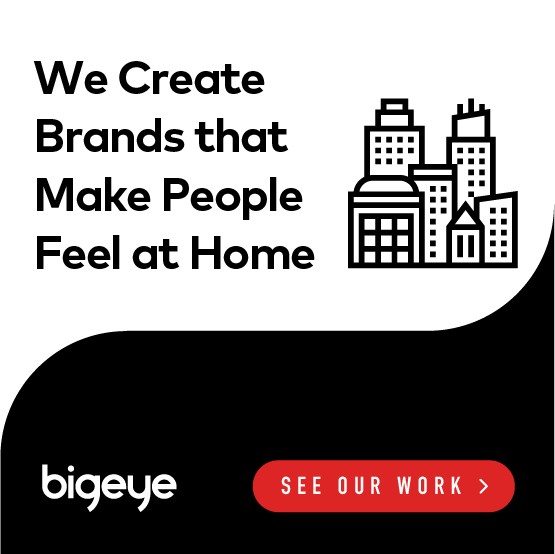
As you are likely aware, rent costs have spiked nearly 15% since 2010, while mortgage interest rates are at new lows after the recession. Yet believe it or not, millennials are still happily paying an average of $1300-$1500 (or more) for rent month after month, with no property equity to show for it. There are many reasons why millennials are opting to rent instead of buy, and to successfully market to this generation, BIGEYE would like to share the following helpful hints to assist you in gaining a greater understanding of those reasons:
Know who you’re talking to:
There are 92 million millennials in the United States. Collectively, they have over 1.3 trillion dollars of student loan debt, may have spent a few years living with their parents or friends when the recession hit, and are bouncing back from 4.7% national unemployment rates. On a brighter note, financial conditions are improving for the 20- and 30-something set, and many are finding themselves ready to cut loose and enjoy a breath of fresh air.
Apartment living can represent that much sought-after breath of fresh air. When older generations explain what the “American Dream” means to them, they often cite owning property or putting down roots. Millennials may include having luxury amenities they wouldn’t be able to afford if they owned a home, such as valet parking, a pool, free gyms or billiard rooms, or a building concierge. Couple these attributes with easy access to food, nightlife, arts, and entertainment in the heart of most urban hubs. American Dream, indeed.
To millennials, the prospect of a 30-year mortgage translates to staying in one place – in one job – for the next three decades. This is a generation that can barely commit to two-year cell phone contracts. Marketing campaigns mapping out this generation’s lifespan aren’t liberating, they’re terrifying. Marketing campaigns that highlight the freedom of renting (or owning a secondary rental property as an extra income stream) – now that’s something.
Speak their language:
Successful property management marketing hinges on your ability to speak this generation’s language. Communicating with millennials the same way you would to the Baby Boomer generation is sure to leave your apartment marketing a little flat. This generation wants to live in locations where homeownership may be out of reach, or they may not be ready to get married and settle down yet – making homeownership a necessity.
The mistake most people make when marketing to millennials is that they assume the Y-generation is unhappy with this arrangement. Goldman Sachs conducted a study that suggests 30% of millennials believe buying a home is important … just not right now. A similar study shows more than 79% of renters between the ages of 18 – 35 want to buy a home within the next five years. That means these renters are content being, well, renters until then. But what does that mean for property managers?
In highly desirable locations, such as San Francisco, Denver, or New York City, that means it’s an owner’s market. Even if millennials were ready to buy, high down payments, aggressive credit requirements, and staggering debt to income ratios make this prospect difficult. Property managers that give millennials access to apartments with high-perceived value will win their hearts, and since most renters pay up to 30% of their disposable income in rent according to Zillow, you’ll also have access to a large piece of their business.
Vacancy rates are at a 20-year low according to the American Census Bureau, so property marketing that targets exclusivity and accessibility to desirable locations is crucial for success.
Know your niche:
For millennials, you want to highlight value not price. Chances are, they know they aren’t saving as much as they’d like or that their paycheck is going to their landlord rather than their student loan holders. Successful property management marketing ideas highlight the value they are getting – despite the cost.
Since millennials are choosing to marry later in life, play up your apartment property’s sense of community and camaraderie. Talk about the convenience of having an on-site property manager to take care of (and pay for routine maintenance and upkeep). Highlight convenient month-to-month options that let millennials dream about their next job promotion to Singapore or London. Boast your building’s free wifi or cable packages that make working remotely or being an entrepreneur a breeze (working by the pool sounds pretty great to us).
Once you begin to understand a millennial’s version of the American Dream, you can begin positioning your property management marketing around those elements. Chances are, they’ll be substantially different from customers in other generations, but that doesn’t mean this market segment is less valuable. In fact, millennials make up about 36% of the housing market in the United States, making them the predominant generation in the industry.
The long and short game:
The short game for millennials is all about renting. The long game, however, appeals to their desire to buy. The economy is improving, interest rates are low, and sooner or later, millennials will begin tying the knot, having kids, and settling in to their mid-level careers.
Once you’ve proven that you understand them, they will remain loyal to you as their needs change. Some millennials will likely stay in the apartment market, opting to convert their rent to a mortgage payment on a condo or flat in the neighborhoods where they first started their careers and barely scraped by. Others will “head for the hills” – or suburbia – for a little more space and lower housing costs. As they grow, your marketing campaigns can grow with them.
Millennials are also poised to become some of the biggest buyers in the second and vacation property market. The National Association of Realtors (NAR) noted a staggering drop in the average age of vacation home purchasers. The market that used to be saturated with retirees with an average purchase age of 61 has plummeted to 43. As millennials watch their siblings turn a profit on vacation properties, and sites such as VRBO.com, HomeAway.com, and AirBnB.com make vacation rentals more accessible as a secondary source of income, millennials will flock to these opportunities as a way to – you guessed it – further harness their own financial freedom.
Millennials are very different from other generations, but understanding and marketing to them isn’t as difficult as you think. After all, everyone wants a beautiful space to come home to at the end of the day – no matter what generation you’re in.
Ready to develop a marketing strategy that resonates with your target demographic, including millennials? Contact our team of experts today to schedule a consultation!



